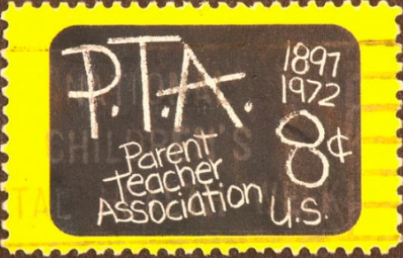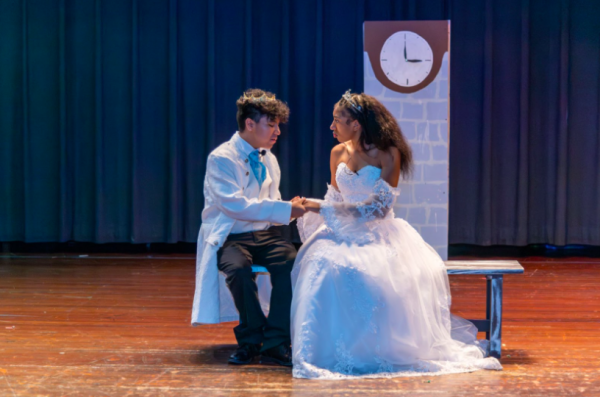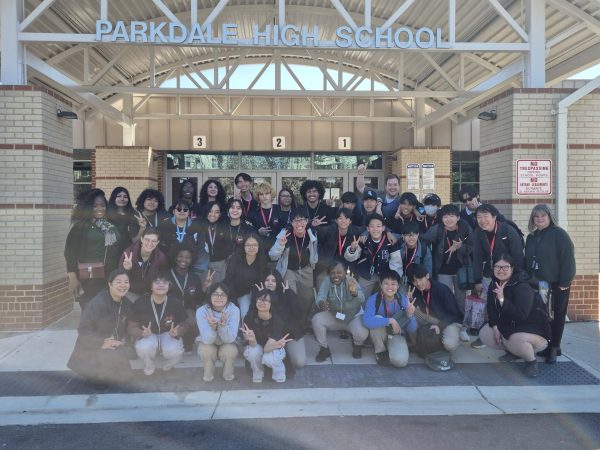Are black students and their history going to be forgotten?
 Black History month has always been a part of this country’s history for years now. Every February, National Black History Month serves as a powerful; reminder that Black history is American history, Black culture is American culture, and Black experiences are vital to the ongoing tale of America – our flaws, difficulties, progress, and aspirations. It is critical for students to learn about their country’s history and what their ancestors went through in order for us to have the freedom we have today. But this might change in Texas schools if the Texas Legislature approves a bill that restricts how teachers can discuss current events in the classroom and teach about America’s historical treatment of people of color.
Black History month has always been a part of this country’s history for years now. Every February, National Black History Month serves as a powerful; reminder that Black history is American history, Black culture is American culture, and Black experiences are vital to the ongoing tale of America – our flaws, difficulties, progress, and aspirations. It is critical for students to learn about their country’s history and what their ancestors went through in order for us to have the freedom we have today. But this might change in Texas schools if the Texas Legislature approves a bill that restricts how teachers can discuss current events in the classroom and teach about America’s historical treatment of people of color.
Texas House Bill 3979 alters the state’s public school curriculum by forbidding instructors from discussing contentious issues from the country’s past, such as racism and the enslavement of people of color. This bill has been coined the “critical race theory bill” according to Texas tribune. Supporters of the bill argue that they are trying to combat personal biases bleeding into public education.
A new version of this bill was approved and says teachers can’t be compelled to discuss current events and if they do, they must explore it from not only one perspective but multiple perspectives without giving “deference to any one perspective.” This prevents students from receiving credit for civic engagement activities like lobbying for legislation or other forms of political involvement. It also included a state-developed civics training program for instructors and a list of founding documents that students must be taught. The Texas Education Agency estimates that this new training program will cost up to 15 million annually starting in 2023.
Teachers say the bill’s language is often vague and they’re unsure how it will affect or change their classes. The dread of being in trouble with the law, on the other hand, could have a chilling impact for them they said “Part of his bill that kind of makes me freeze up is like feeling like I can’t talk about race or feeling like I’m going to say something that’s out of my lane, out of my professionalism as a teacher.” Educators are also worried that Texas students will be at a disadvantage when it comes to taking Advanced Placement or dual enrollment classes in high school if they don’t receive through lessons about how race and gender have shaped American society.
A former history teacher Mallory Lineberger who now serves as a policy fellow for the advocacy group The Education Trust in Texas, says AP history students are often scored on how well they can connect historical events and modern issues. “If we can’t talk about contemporary issues or current events, how are they supposed to be able to have a thorough and critical analysis of how a topic has changed over time?” she said.
Over 220 historians and teachers from across Texas have signed a letter opposing the law and expressing similar concerns. Amani the executive director of the Southern Birth Justice Network, which advocates for Black maternal health says “To just give children some sanitized, watered-down version of history that doesn’t work,” Black educators say they have to be especially cautious in many regions of the country, fearful that the content they provide may make students or their parents uncomfortable, or that a colleague or community member will be insulted.
Your donation will support the student journalists of Parkdale High School. Your contribution will allow us to cover our annual website hosting costs and publish some printed editions, as well.

Princess Passie is a senior year, and this is her first full year on The Paw Print staff. She contributes to the staff by writing informational articles....






